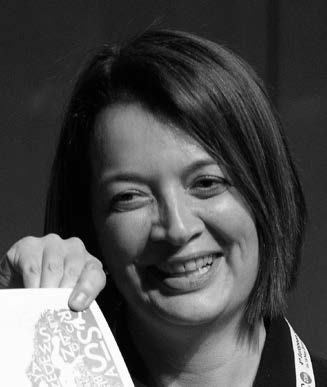“Neurogenetics are revolutionising diagnosis and now even treatments”
Four years after the founding of the EAN and after four years of presidency, Prof. Günther Deuschl from Kiel in Germany is succeeded by Prof Franz Fazekas from Graz, Austria.
Prof. Deuschl talks to Medicom's Conference Report about highlights of the 2018 EAN-meeting and about his successor.
What have been some of the highlights of this conference so far for you personally?
“First of all, it was the first time our conference was held in Lisbon. It is a pleasure to be in Portugal, where neurology is strongly represented. For example, it was here that functional neurological surgery was developed; also, many genetic neurological diseases were discovered in Portugal. The conference itself has neurogenetics as an overarching theme this year. We are very pleased with the response to the way we decided to treat this topic, ranging from a slightly 'philosophical' approach to diagnostic and therapeutic applications – genetic applications – in neurology, which have provided the visitors with a really interesting overview of the current field.”
“But there were many more highlights. As far as teaching is concerned, we had patients on stage for the first time, who were interviewed by experts in the field in question. The participants could hear and see how the experts do their job, which I think is a very important teaching tool. Also for the first time, we did the Neuro Quiz, with two teams competing. After the presentation of four example cases or findings, the two teams, as well as the audience, could make their decisions, which is a huge learning tool. Then, of course, there was the state of the art. We have seen dramatic improvements in, for example, the field of stroke. Imaging is now implemented into therapy, which is really new. Before, you had to perform a CT scan before you could do a thrombolysis; now we can use imaging information to treat patients that we could not treat before. That is a huge improvement for patients. And there are many more such highlights.”
Coming back to neurogenetics as the overarching theme of this meeting: can you please explain why this is so important?
“Neurogenetics have really revolutionised the diagnosis of neurological disorders; this is a process that has been going on for some 30 to 40 years. It started 1993 with the discovery of the Huntington gene. But what is really ground-breaking is that it is now also beginning to be applied to therapy. We have the first gene-driven therapies in neurology now, for spinal muscular atrophy. It is one of the first big successes of genetic therapy. Results were already touched upon in last year's meeting. But seeing babies who were prone to die within the next few years really recover and have an almost normal life... is truly stunning.”
Your colleague overseas, Prof. Ralph Sacco, who is president of the American Academy of Neurology (AAN), said last April that more neurologists are needed. Is that a concern within Europe as well?
“Absolutely. However, the need for neurologists very much depends on the country. There are countries where the number of neurologists is considered relatively reasonable. In other countries, our data show that many patients with neurological diseases cannot be treated by a neurologist because there are too few available. These countries are aware of this and are now undertaking efforts to solve this issue. It is a work in progress.”
You will be succeeded as EAN president by Prof. Franz Fazekas. What can you tell us about him; what do you expect of him?
“First of all, Prof. Fazekas is an excellent scientist, who is especially active in the fields of stroke and multiple sclerosis. Very few scientists can excel in two fields, but he does, his specialty being imaging. Having known him through our daily activities for about four years now, I could not possibly think of a better successor than him, deeply skilled in analysing neurological situations and the situation of neurology. He also possesses the elegancy needed to keep the EAN together: he is a very polite person and very much dedicated to the task ahead of him. He will have a very good presidency, which will move the EAN significantly forward.”
You will now have some more spare time; what do you intend to do with it?
“I will spend it on working for neurology.”
Posted on
Previous Article
« Editor Biography Next Article
Letter from the Editor »
« Editor Biography Next Article
Letter from the Editor »
Table of Contents: EAN 2018
Featured articles
Related Articles

March 7, 2018
Letter from the Editor
© 2024 Medicom Medical Publishers. All rights reserved. Terms and Conditions | Privacy Policy
HEAD OFFICE
Laarderhoogtweg 25
1101 EB Amsterdam
The Netherlands
T: +31 85 4012 560
E: publishers@medicom-publishers.com

